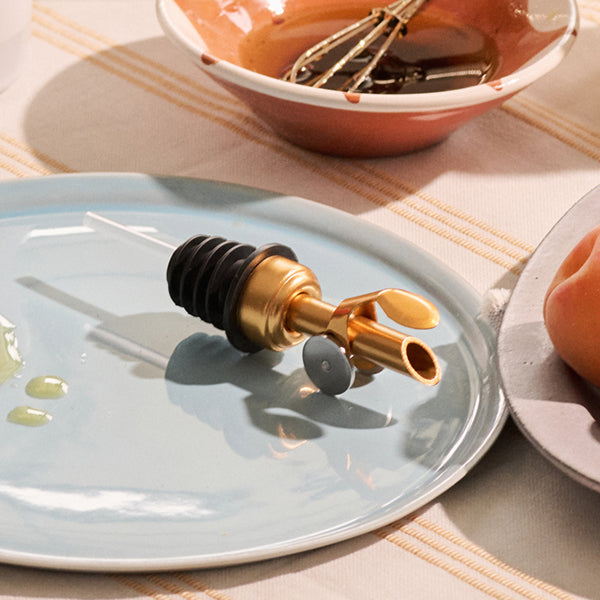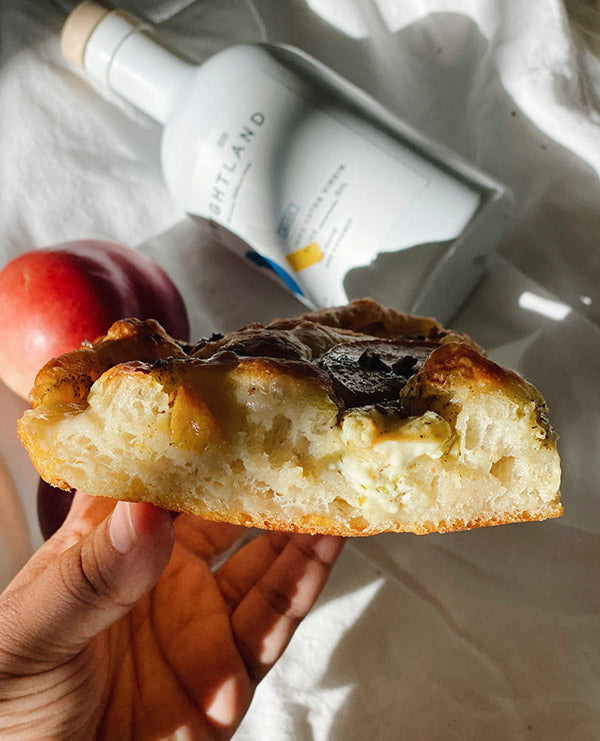[open type="rte"]
Maybe you are going out of town for a while and do not want your olive oil to go bad while you are gone. Maybe you have a bottle that you have hardly used and you are trying to extend its shelf life. Maybe you are just curious about whether or not this freezing feat is physically possible. Regardless of what brought you here, you are asking yourself, “Can you freeze olive oil?” In this guide, we will explain whether or not it is physically possible to freeze olive oil — and more importantly, whether or not you should freeze olive oil.
[close type="rte"][open type="images" small="true"]

[close type="images"][open type="rte"]
Can You Freeze Olive Oil?
The answer is yes, it is physically possible to freeze olive oil. In fact, olive oil begins to solidify around 54 degrees Fahrenheit, and it begins to completely freeze around 10 degrees Fahrenheit. Most refrigerators in the United States are kept around 40 degrees or a little below, and freezers are set to 0 degrees. That means that if you put the olive oil into the fridge, it will solidify, and if you put it into the freezer, it will freeze.
The reason why we say that olive oil freezes around 0 degrees Fahrenheit is because each olive oil has a slightly different chemical composition depending on the olives used, how it was harvested, what refining (if any) was done and so on. This causes the solidifying and freezing temperatures to vary from batch — and even bottle to bottle.
Olive oil does not solidify all at once. It does so in stages. You will notice the liquid become cloudy before it actually turns completely solid. That is because the triglycerides and naturally occurring waxes solidify first, turning into opaque particles giving the olive oil that cloudy appearance. If left in the cool temperatures, the entire bottle will eventually solidify and turn opaque.
[close type="rte"][open type="images" small="true"]

[close type="images"][open type="rte"]
Speaking of cooling down olive oil, you may have heard a myth regarding olive oil and refrigerators. The theory went that if you put olive oil in the fridge and it solidified, it was extra virgin olive oil. If the olive oil remained liquid, then it was not extra virgin. While the simplicity of the theory may be appealing, it simply is not true. Refined olive oil will turn solid in a refrigerator, just like extra virgin olive oil, due to its chemical composition.
[close type="rte"][open type="rte"]
Should You Freeze Olive Oil?
You now know that it is technically possible to freeze olive oil. But should you do it? At Brightland, we generally recommend keeping your olive oil in a cool, dark place (such as the pantry) instead of placing it in the fridge. This way, the olive oil does not solidify and you do not have to worry about warming it up whenever you want to cook. If properly stored, extra virgin olive oil will usually last 12-18 months before it goes rancid. (Learn more about how to store olive oil.)
However, we realize that not everyone is able to use up a bottle of olive oil within that time frame, especially if it is a flavored olive oil that you do not use every day. To that end, we recommend freezing the olive oil in a covered silicone ice cube tray. This way, you do not need to thaw the entire bottle whenever you want to use some olive oil. A flexible silicone tray will make it easier to remove one cube at a time, and a cover will keep the olive oil from absorbing the smell or taste of other food in your fridge. Fill the reservoirs in the tray about three-fourths of the way full so that it does not overflow.
[close type="rte"][open type="images" small="true"]

[close type="images"][open type="rte"]
One popular reason for freezing olive oil is to preserve fresh herbs. Chop the herbs and place them in the ice cube tray before pouring in the olive oil. The herbs will freeze inside the oil, preserving them until you are ready to cook. Then, simply pop out one of the olive oil cubes and place it in a pan until the heat melts it.
We hope this quick guide answered your question about freezing olive oil. If you are looking for some new olive oil to refresh your pantry, we recommend our olive oil set The Duo, which features our two most popular and versatile extra virgin olive oils.
[close type="rte"]


























